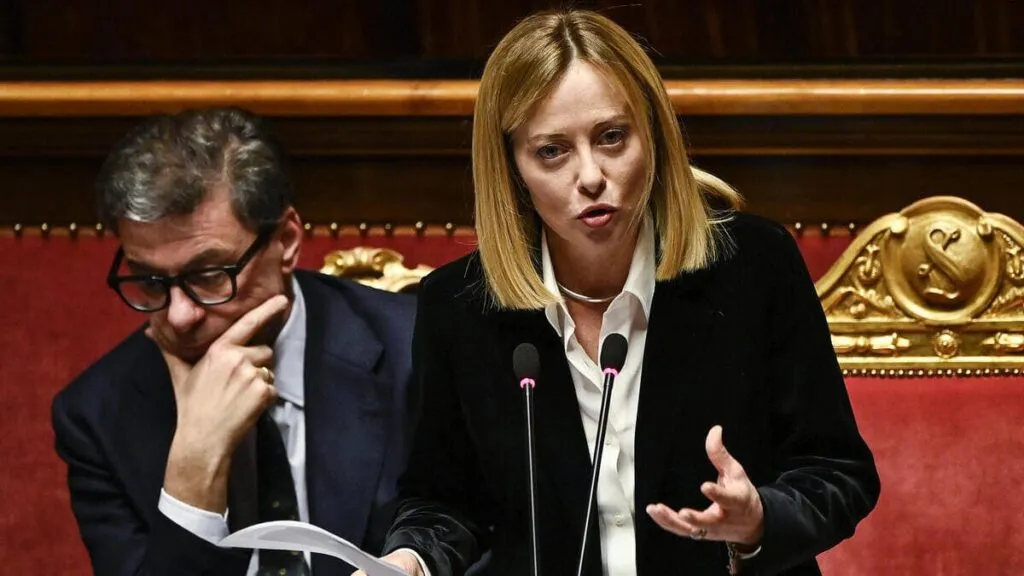As Pope Francis calls for “disarming minds and disarming the earth” from his hospital bed; while Germany approves a massive rearmament plan (approximately 1,000 billion); while Ursula von der Leyen says that “Europe must prepare for war”; while France and the United Kingdom continue to push for sending troops to Ukraine; amidst all this, Donald Trump and Vladimir Putin have their first phone contact to determine a ceasefire in Ukraine.
The initial information about the two-hour conversation tells us that Putin has agreed to halt attacks on Ukraine’s energy infrastructure for a month, on the condition that Kiev does the same and that the supply of weapons stops. A prisoner exchange has been announced and a commitment to find a “peaceful solution” has been expressed.
Trump: Brutal yet Effective Methods
Only time will tell if actions will follow words, if this will be the first step towards resolving the conflict, if Putin will not sabotage the agreement, and, most importantly, if Ukraine will have to accept a peace, if not “fair,” at least not humiliating.
The “ifs” are many, but one fact remains: everything changed with Trump’s arrival at the White House. With his brutal methods, the American president forced Kiev to negotiate, and he did so with a style that may be scandalous but, in the end – it must be admitted – effective. On the other hand, the Biden doctrine (supplying Ukraine with enough weapons to defend but not to win) had led the war into a deadlock and stalemate. While it is true that Putin was not winning, it is a fact that his troops now occupy 20 percent of Ukrainian territory.
Read also

Meloni: No to Sending Troops
In another news event, Giorgia Meloni reiterated the coordinates of her position in her speech at the Senate, which – as we wrote yesterday – remained marked by prudence and pragmatism. Therefore: total condemnation of the Russian aggression against Ukraine; a positive assessment of the efforts of the Trump administration to find a “fair and lasting” peace; a commitment not to divide Europe from the United States to avoid “creating a rift that weakens the West in favor of other actors” (read China, etc.).
Meloni reaffirmed that the Italian government will not commit to sending Italian troops to Ukraine and described the French and British option of sending soldiers as “very complex, risky, and ineffective.” The Italian proposal of using an extension of Article 5 of NATO to ensure the necessary security for Ukrainians without obliging the country to join the Atlantic Alliance, thereby pushing Russia to “show its cards,” seems more feasible.
Meloni also devoted part of her speech to explaining that the Rearm EU plan has a name that does not convince her because Italy wants to engage, without using cohesion funds, not so much in buying new weapons but in strengthening defense to protect our borders, pipelines, space, underwater domains, and cyberspace.
Extreme Caution
As noted yesterday in Il Giornale by Giovanni Orsina, our government seeks a path that avoids catastrophic tones, trying, as much as possible, to keep Europe and the United States together without giving up on pointing out what is wrong.
In such a chaotic situation, the Italian position appears to be the most sensible. It avoids being dragged into a hysterical and catastrophic atmosphere towards dangerous choices, and – as Orsina always writes – tries not to break with the American ally. It won’t be easy, but Meloni’s “extreme, almost obsessive caution” could prove to be a virtue: “Today, any acceleration would be reckless and presumptuous. Especially since Italy does not have the budget capacity of Germany or the nuclear weapons of France and the United Kingdom: today, they risk appearing presumptuous, let alone us.”



